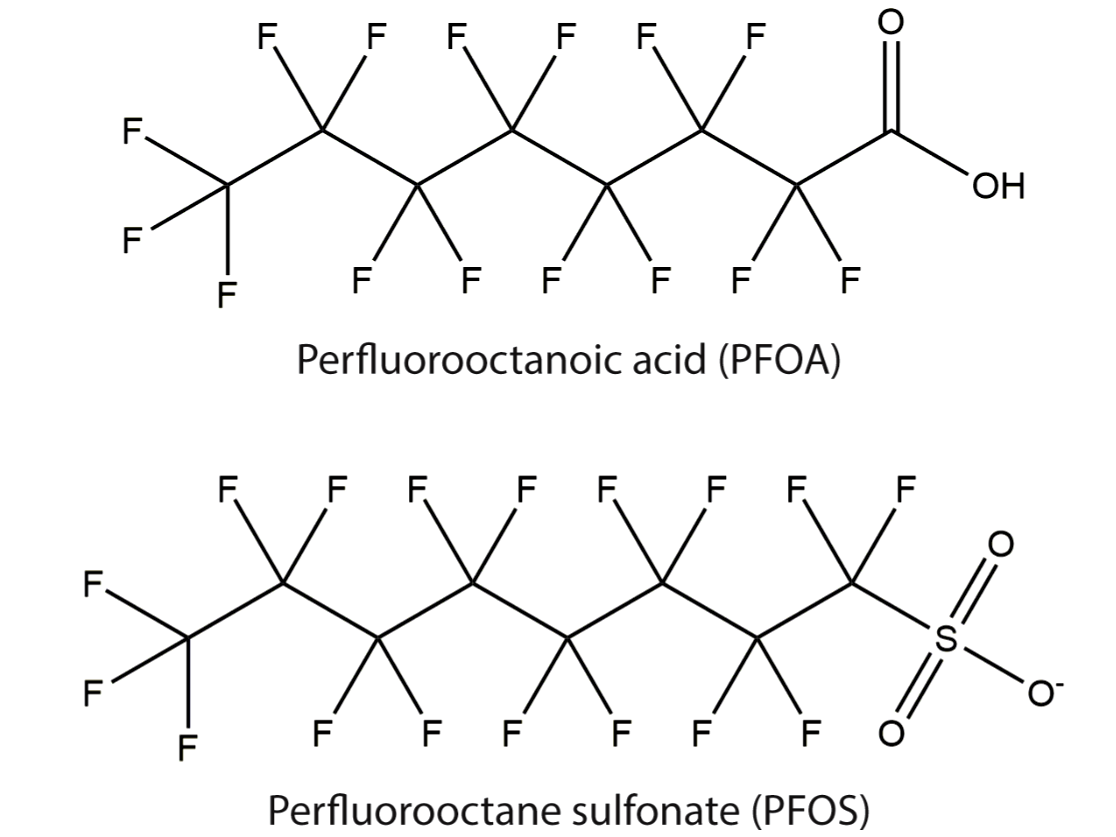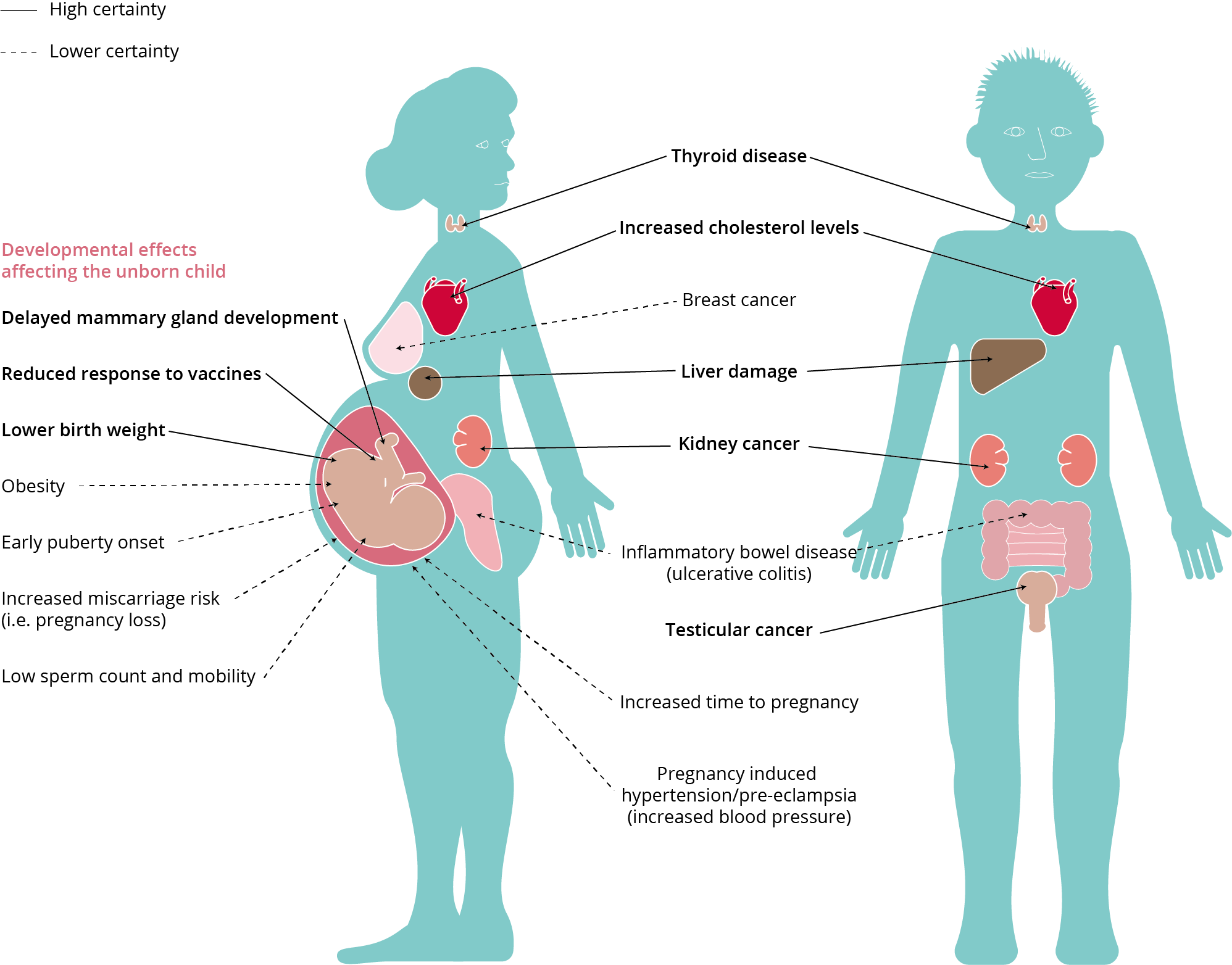German Study Links PFAS Exposure to Adverse Lipid Profiles and Cardiovascular Risk
Researchers at the German Center for Neurodegenerative Diseases (“Deutsches Zentrum für Neurodegenerative Erkrankungen”, abbreviated as DZNE in German) have recently uncovered evidence suggesting a concerning association between per- and polyfluoroalkyl substances (PFAS) found in human blood and adverse lipid profiles, potentially increasing the risk of cardiovascular diseases. Published in the esteemed journal Exposure and Health, the study involved more than 2,500 adults from Bonn in Germany and Leiderdorp in the Netherlands, indicating detectable levels of PFAS in nearly all participants.

Related article: Dual Function Materials’ Value for a Greener Future
PFAS and Their Established Health Concerns
PFAS constitute a family of synthetic organofluorine chemical compounds widely used in various industrial processes and products since the 1950s, earning them the moniker ‘forever chemicals’ due to their persistent and resilient nature stemming from their water, fat and dirt-repellent properties. Globally, PFAS contamination is widespread as a result of the manufacture, use, and breakdown of PFAS-containing products, such as cookware, textiles, and fire extinguishers Human exposure occurs through contact with contaminated environments (through dermal route or inhalation), and ingestion via water and food, leading to ubiquitous and chronic exposure.
Health concerns related to PFAS have arisen since their introduction, with direct exposure associated with adverse outcomes such as obesity, decreased fertility, endocrine disruption, kidney disease, various cancers, thyroid issues, hypercholesteremia, liver damage, reduced vaccine response, and an increased risk of severe COVID-19. Animal studies highlight impacts of PFAS on the immune system, proteome, hormones, and metabolome, with high-risk groups like children and factory workers facing elevated risks.
In particular, perfluorooctanoic acid (PFOA) and perfluorooctanesulfonic acid (PFOS), two prominent PFAS currently under strict regulations, were officially classified as a Group 1 (carcinogenic to humans) and Group 2B (possibly carcinogenic to humans) carcinogens respectively by the International Agency for Research on Cancer (IARC) in November 2023.

Linking PFAS Exposure and Cardiovascular Risk, Younger Generations More Vulnerable
Dr. Monique Breteler, Director of Population Health Sciences at the DZNE and the corresponding author of the study, revealed a correlation between PFAS levels in the blood and unfavorable lipid profiles associated with increased cardiovascular risk. Intriguingly, given the same blood PFAS concentration, harmful effects were more pronounced in younger subjects compared to older individuals, suggesting a potential age-dependent susceptibility.
The data indicates a significant link between PFAS levels in the bloodstream and harmful blood lipids associated with cardiovascular risk. As PFAS levels rise, the concentrations of these lipids increase accordingly, suggesting a potential connection between PFAS exposure and adverse blood lipid profiles. Even though, strictly speaking, the data do not definitively prove that these perfluorinated chemicals cause adverse blood lipid profiles, the strong correlation lends credence to such suspicion.
Alarmingly, PFAS was detected in nearly all individuals tested, indicating widespread exposure to these chemicals. Even though immediate health risks might not be apparent among the study participants, there is cause for concern. Over time, the heightened risk could potentially harm the heart and cardiovascular system. “It is a strong argument for stricter regulation of PFAS in order to protect health,” commented Dr. Breteler.
Advanced Analytical Techniques Uncover Alarming Associations
The research was part of DZNE’s “Rhineland Study” conducted in the Bonn urban area and the NEO (Netherlands Epidemiology of Obesity) Study from the Netherlands. It involved collaboration with experts from Leiden University Medical Center in the Netherlands. Using advanced mass spectrometry technology, the researchers analyzed blood samples from a diverse population aged between 30 and 89. The study focused on three common types of PFAS, namely, PFOA, PFOS and PFHxS (Perfluorohexane sulfonic acid), and examined their associations with 224 blood lipids (lipoproteins), metabolites, and amino acids. Notably, the study found no significant differences in PFAS levels between participants from Bonn and Leiderdorp, indicating a widespread presence of these chemicals across regions.
Call for Further Investigation and Regulation
According to Elvire Landstra, the first author of the study and PhD student at the DZNE, the study is the most detailed on this topic to date and the one with the largest database. “Previous studies had already suggested a correlation between PFAS and unhealthy blood lipids, but this link had never been as clear as in our study,” said Landstra.
The findings underscore the urgent need for continued research into the health effects of PFAS, particularly on specific organs beyond blood levels. Dr. Breteler suggested future studies could explore the occurrence of PFAS in individual organs to better understand their impact on overall human health. As these ‘forever chemicals’ are pervasive and persistent in the environment, the study’s results call for critical regulation of these substances to mitigate potential health risks associated with cardiovascular diseases.
©www.geneonline.com All rights reserved. Collaborate with us: service@geneonlineasia.com








